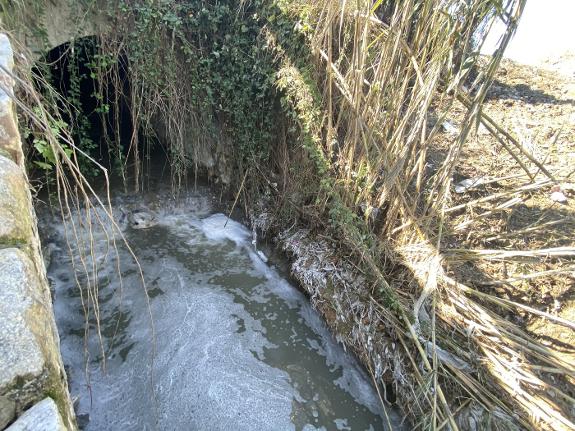Eight public officials under investigation in Alhaurín el Grande over raw sewage disposal
The town's mayor, Toñi Ledesma, her predecessor, Juan Martín Serón, and six people who are or have been councillors are accused of environmental offences
JUAN CANO / FERNANDO TORRES / ÁLVARO FRÍAS
Viernes, 31 de enero 2020, 18:41
First it was Coín, then Nerja and now Alhaurín el Grande. The Guardia Civil's Nature Protection Service (Seprona) has handed a court the third phase of 'Operación Vastum' in which 24 officials or former officials from the three municipalities are being investigated for environmental offences.
The investigation began in 2017 after the Ecologistas en Acción Andalucía group reported "serious irregularities" in waste treatment, with untreated sewage flowing into the sea, rivers or streams. The Environmental Prosecution Office claims that the three municipalities have acted continuously, intentionally and have not complied with requests from the Administration.
In Alhaurín el Grande, Seprona is investigating the present mayor, Toñi Ledesma, former mayor Juan Martín Serón and a further six people who have been councillors after 2007. Seprona ascertained that untreated sewage is flowing from the town centre, some outlying distances and La Rosa industrial estate into the Arroyo de la Villa stream, a tributary of the Fahala river.
Protected area
The matter becomes even more serious bearing in mind that this stream is in a protected natural area and is part of the special conservation area of the Guadalhorce, Pereila and Fahala rivers.
According to the investigation, the stream and the Fahala river are "extremely contaminated" and so toxic that it is difficult for marine life to survive.
This situation is not new. It has been the case for at least 18 years, which Seprona says is a continual contravention of regulations designed to protect the environment. According to EU legislation, a municipality like Alhaurín el Grande, with more than 15,000 inhabitants (it currently has 24,123) should have been treating its sewage since January 2001.
In fact, in July 2018 the EU Justice Tribunal fined Spain 12 million euros plus an additional sum of of 10,950,000 for each six-month period of failure to comply, for the delay in meeting its obligations regarding sewage treatment.
No sewage plants
Of the nine towns with over 15,000 inhabitants to which this fine referred, three (Nerja, Alhaurín el Grande and Coín) had been expected to comply with the rules before the end of 2018, but none of them are yet treating their sewage. In the case of Coín, the plant has been built and is already treating the sewage from Álora and Pizarra, but bad weather in October 2018 broke the pipes in Coín and these are yet to be repaired. Sewage from Alhaurín el Grande will be treated at the future plant in Malaga, but this has not yet been finished.
Seprona believes action should be taken against those who have held public office in Alhaurín el Grande in the past 18 years, claiming they were responsible for ensuring that the sewage was treated.
However, the Foro por el Saneamiento Integral en la Costa del Sol, which is trying to ensure that Spain complies with the 'zero waste dumping' regulations, says the blame lies with the Junta de Andalucía and the government, because they, and not the councils, are responsible for building the treatment plants.
